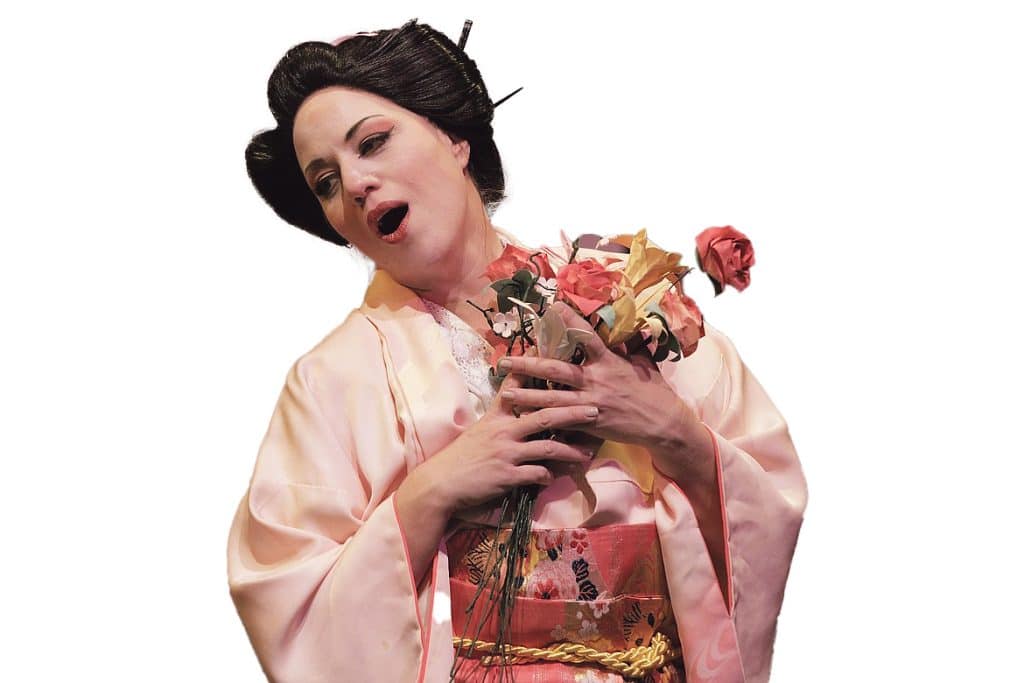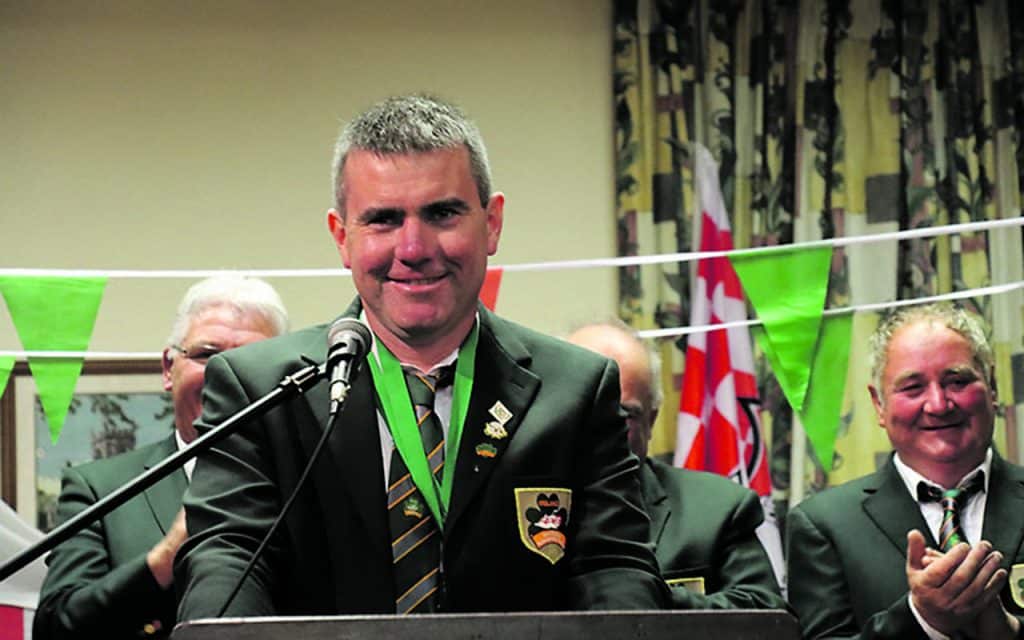When Ronald Reagan began his 1984 election campaign it was to the backdrop of Bruce Springsteen’s ‘Born in the USA’. He wanted the song to reflect his patriotism and in a ‘Trumpian’ manner, conjure up the theme of American greatness. Just like in his days as a Hollywood actor, Reagan was happy to be fed the line without really knowing its full implications. If he was a real Springsteen fan and listened to anything beyond the catchy anthem chorus, he would have noticed that Bruce had written it as a satire on America’s failures, depicting a broken USA, ‘I’m ten years burning down the road, nowhere to run, ain’t nowhere to go’. Reagan won and when the Soviet Union crumbled on his watch, it seemed for Americans that there could be nothing greater than being, ‘Born in the USA’.

Adolf Hitler knew the power of a great tune. The great German composer Richard Wagner (1813-1883) was a favourite of Hitler’s, and he used his music as a backdrop to his social nationalism. One only has to listen to the ‘Ride of the Valkyries’ from his opera ‘Die Walkure’, to appreciate the drama, energy, strength, victoriousness, that the song conjures – all very attractive to a man who wanted to project all those things. Wagner was fifty years dead when Hitler was on the rise, but Der Führer won the favour of his family (like many Germans, the Wagners looked to Hitler as a man who would, to paraphrase Trump, ‘Make Germany great again’.) He even was involved in the programming at the Wagner Bayreuth Festival and was the guest of honour there on one occasion. Wagner too was known to be antisemitic, which was ingrained in societies throughout Europe for centuries, and of course this attribute appealed to Hitler and the Nazis. His minister of propaganda, Joseph Goebbels declared Wagner’s, ‘Die Meistersinger’, as “the most German of all German operas”.
The most popular of all operas have been composed by Giacomo Puccini (1858-1924). Music of course is subject to our own interest and taste, but in terms of popularity and staged performances, Puccini is way ahead of all opera composers. He also drew a particular unsavoury character; perhaps a bit like Ronald Reagan taking advantage of the power of association, Mussolini proclaimed himself a fan of Puccini and indeed gave his funeral oration in 1924, in the magnificent Duma of Milan. Puccini was not active in politics, but the relationship was mutual, and he became a member of the fascist party (more a card carrying, rather than an active one). It was not unusual for people, Puccini included, to find the cult of the leader attractive in post WWI Europe. After all, these fascist autocrats opposed the fledgling democracies that were presiding over runaway inflation and mass unemployment. Ireland’s George Bernard Shaw, one of the era’s great writers, socialists and thinkers, wrote one of his famous plays, ‘Man and Superman’, to the backdrop of this ‘craze’, admiring the attributes of fascism.
In the days of Mozart (1756-91), when absolute monarchies presided, one could not use themes that would undermine the ‘rule of law’. Shakespeare knew this rule all too well and his plays, as full of wonder as they are, never stray from the path of conservatism. On his stage kings were murdered and emperors overthrown but all those ‘wrongs’ would be revenged and the ‘natural order’ would return. Yet when Mozart’s ‘Marriage of Figaro’ premiered in 1786, it dared to champion the ordinary man and woman over the aristocratic nobleman who wished to take Figaro’s fiancé Susanna for himself, the ancient right to ‘deflower the bride’. Figaro protects his bride but the nobleman is forgiven, leaving theatre patrons (who were of the very class that Mozart was satirising) happy going home. Much of this opera has been used in film soundtracks (such as Trading Places) and many commercials.
Frenchman George Bizet (1838-1875) created one of the most influential operas of all time – ‘Carmen’; although it was a flop when it premiered and Bizet fell into a depression, became ill and died three months later. He had been guilty of realism – a style that would be mimicked by operas that followed, but alas it was too soon for his audience who were shocked by the sexual freedom and audacious behaviour of Carmen, a Spanish gypsy prostitute who is the heroine and force of the play. Her realism, confrontational style and sexual prowess would be nothing new to modern audiences but not in 1875 when it premiered. Carmen’s music is sublime and its storyline is tragic. Munster rugby fans who stand in Thomond Park and belt out the Munster Anthem, ‘Stand up and fight’ are actually singing to Bizet’s tune ‘Toreador’, which is central to when two characters fight for Carmen’s attention.
The ‘Barber of Seville’ written by Gioachino Rossini (1792-1868), is famously depicted in a Bugs Bunny cartoon when Bugs and his nemesis Elmer Fudd, meet in a barber shop where their usual catch and chase results in Fudd’s humiliating capitulation to the ever-mischievous Bugs. I remember seeing this as a child and even then, found the music enchanting. Rossini was one of the most prolific composers of any era, in particular of comic opera, but his development of the aria and musical pacing brought a vigour like no other. Such was his fame that King George requested a private audience with him when he came to London.
Opera is more present in our lives that we think and is far from the high-brow, inaccessible portrayal it receives. Though, like a lot of things in life, it does take time, and a certain maturity, to come around to it. Of course there are plenty of exceptions, but in the main, it is the grey hair brigade (of which I am one of myself) that tend to occupy the seats. And before one assumes opera tickets belong to the range of the rich, you’ll find tickets for ‘Rigoletto’ opera by Verdi (1813-1901), one of the greats, starting at a mere €14 this December in Dublin. But opera does take patience, as the performance can range from two to three hours, (though usually with two intervals) and this can be a difficult watch for younger people, who perhaps are at a stage where they prefer to spend that time dancing and listening to a multitude of genres and performers, or have only time and patience for songs that last three to five minutes. I was one of those too but I see opera as an evolution of musical tastes, a maturing of one’s ability to listen and contemplate, which I did not possess in my youth unfortunately. For me there is no higher form of art. Opera has the sophistication of symphonic musical scores, the range of instruments in one place that is found in no other musical form, the drama and characterisation of great plays, the staging and costume that is truly a visual wonder, the volume of people on one stage (Verdi’s Aida can boast of a chorus of up to 100 opera singers alone, breathtaking in its scope and ambition). The Prima Donnas, sopranos, tenors, and so on, don’t rely on microphones. The power of their voices soar to the heavens. I have witnessed open air theatres in Verona and Pisa, filled with the sumptuous sounds of the lead opera singers, booming out their declarations of love, dénouement of tears. They can fill these massive spaces with their whispers or dying breath, such is the power of their vocals. ‘La Boheme’ and ‘La Traviata’ finish with their heroines lying on their death beds and yet their dying whispers can be heard in row Z. It is an exceptional, ethereal talent to exercise this skill.
It was through Puccini that I found a pathway into opera. Most opera composers collaborate with a ‘libretti’, which is the writer of their story (Wagner unusually and successfully, was able to do both). Puccini worked collaboratively with two, Giacosa and Luigi. They would look for older stories, novels, and plays, and rewrite or shape them for the opera, somewhat akin to a screenwriter adopting a novel for film today. Over this, the composer creates his or her score. But Puccini would make adjustments, suggestions additions to this. Together, they produced some of the greatest operas of any era; ‘La Boheme’ (1896), ‘Tosca’ (1900) and ‘Madame Butterfly’ (1904). Puccini’s success lay in that he ‘conceived opera above all as a spoken drama to which music lends a third dimension’. He produced some of the most iconic arias, a song for a solo singer, so audiences could carry home some tunes, rather than just a continuous three-hour sound track. From Maria Callas to Pavarotti, great opera performers have sought parts in his creations. In ‘Madame Butterfly’, based in Japan, Puccini’s score conjures up the sounds of Asia, his melodies break the hearts of its audience. One would have to be a stone to be untouched by it – the music alone is heart rending. (Modern operas have subtitles so you can follow the dialogue, but I find its best to brief yourself on the storyline, so you can be in the moment with the music). ‘La Boheme’ has tremendous ensembles, pageantry and music that will live long in the memory and ‘Tosca’ has all tension and tragedy of great plays and one of the most evil of all characters in any artistic format – the unscrupulous, immoral Scarpia. Whether it is food, books or music, we all have different tastes and favourites. I would certainly take a bite of opera to see if it’s for you. And if you like what you taste, I guarantee that you will be hungry for more. Feed your appetite with music fit for the Gods.



